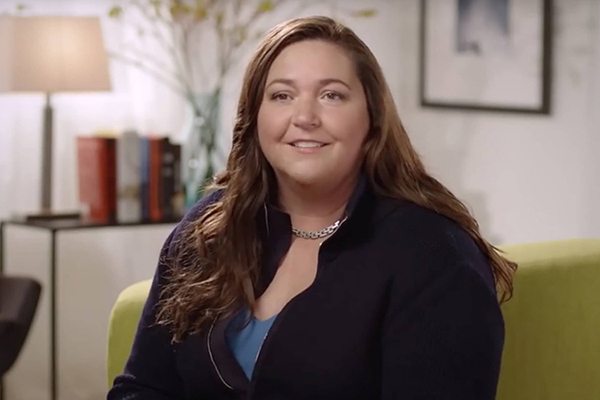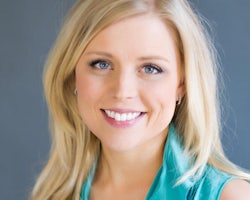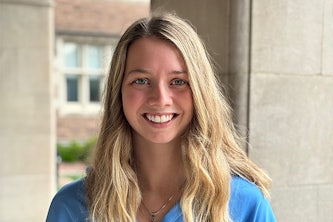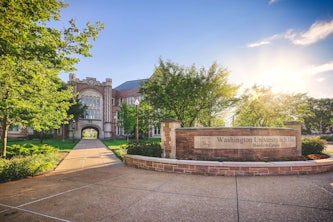Women & Engineering celebrates accomplishments at annual Leadership Summit
The third annual event provides alumnae and students with opportunities to network and learn from one another

Going virtual didn’t inhibit the Women & Engineering Leadership Summit. If anything, it made it more accessible than ever.
Nearly 200 students, faculty and alumnae took part in this year’s event, which was held March 6. The annual event aims to provide an opportunity for women to network and collaborate in a supportive environment.
Last year’s event was canceled due to the COVID-19 pandemic, so members of the Women & Engineering Leadership Society at the McKelvey School of Engineering were excited to bring it back for 2021.
“Even though the event was held virtually, it still fostered the inclusive, welcoming and inspiring atmosphere that we’ve created with previous in-person summits,” said Emily Boyd, teaching professor in the Department of Mechanical Engineering & Materials Science and co-founder of the Women & Engineering Leadership Society. “While I think people prefer to participate in-person, especially for networking purposes, this allowed more people to participate from wherever they are.”
For students such as Khin Wai Han and Angelica Santiago-Ortiz, the event provided an opportunity to meet with accomplished alumnae from throughout the nation.
“I decided to attend this year’s summit, even though it was virtual, because I knew I was going to learn something with the time I invested,” said Han, a dual-degree student pursuing a master’s in project management. “Conversing with our women Engineering alumnae not only gives me knowledge about career, diversity, work-life balance and mentorship, but also reminds me of the good habits I can start building to prepare for the transition from academia to industry.”
This is Han’s second time attending the leadership summit; at her first event, in 2019, she left with a mentor, who would later go on to become a close friend.
“I cannot emphasize enough why providing and attending these networking/empowerment events are crucial for students’ personal, social and professional development,” Han said. “Learning to network with alumni translates well to conversing with the recruiters by actively listening and curiously asking about the person or the hiring positions.”
Santiago-Ortiz, a first-year student majoring in chemical engineering, said she looked forward to learning how other women gained the confidence to take on challenges they face in such a male-dominated industry.
“As a first-year, I feel overwhelmed by the sheer number of amazing opportunities at WashU and how I can use them,” Santiago-Ortiz said. “I wanted to learn how women overcame those gaps in confidence in college, as well as in their own careers. Being able to address this early is important because I want to feel confident in the future when I have more opportunities on the table.”
Alumna Anna Patterson, who earned bachelor’s degrees in electrical engineering and computer science in 1987, delivered the event’s keynote address, which celebrated what women can accomplish when they have those opportunities.
“There are so many uplifting stories of engineering making a difference,” Patterson said. “It not only helps people, it helps people at scale.”
She also offered advice to those who may have similar insecurities as Santiago-Ortiz.
“You may think you have imposter syndrome and no one else does, but it’s pretty universal,” Patterson said. “Just be accepting of others and be accepting of yourself. Don’t be afraid to contribute.”
Along with the keynote presentation and breakout sessions, the event included updates from Dean Aaron Bobick about new diversity initiatives, faculty hires and admissions. One such update was that, for the first time in the history of the Engineering school, white males were not the majority of the incoming class. Fifty-one percent of McKelvey Engineering’s admitted students in 2020 were women or students of color.
“I hope that McKelvey continues its trend of admitting greater numbers of women and makes sure that it focuses especially on women of color,” Santiago-Ortiz said. “I hope to see more female students of first-generation and low-income backgrounds within McKelvey and be supported with their experiences.”




